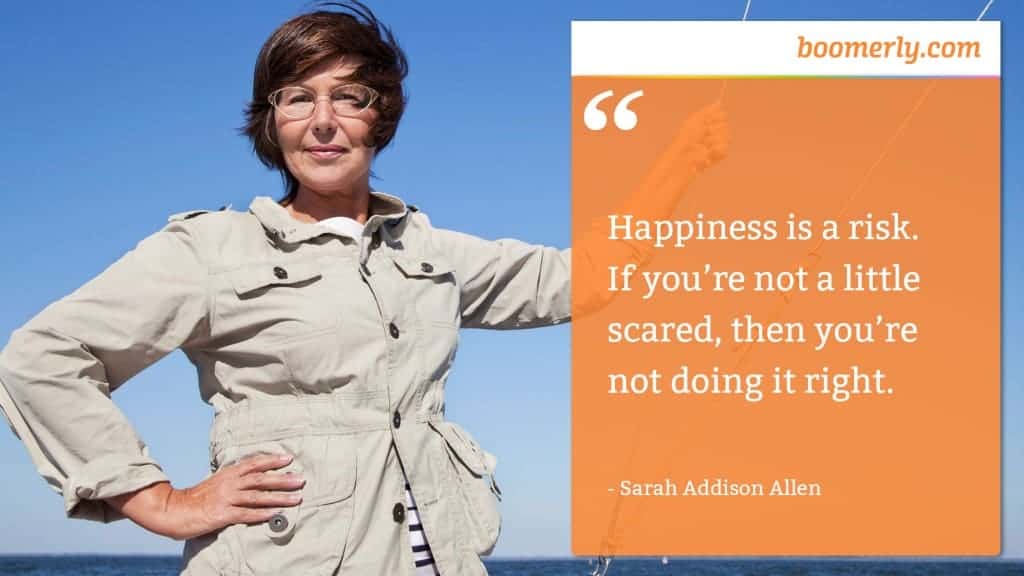Over the course of our lives, we are taught many lessons. We learn that some people can’t be trusted. Most of us discover, the hard way, that life isn’t “fair.” We learn that most black and white issues are actually colored by rainbows of complexity. Unfortunately, many of us respond to these “lessons” by becoming more cautious and risk-averse.
Over time, we become more cautious about whom we let into our lives. Many of us take fewer intellectual risks, preferring to rely on recommendations from our political, religious or other leaders when it comes to important issues. As our bodies change with age, some of us decide to stay inside and avoid “risky” activities such as sports and travel.
True Happiness Requires Us to Step Out of Our Comfort Zone
The problem is that happiness requires risk. When we become cautious in our thoughts and actions, we gain a little security at the price of ultimate happiness.
Take a few minutes to think about your life. Do you find that you have become more risk-averse as you have gotten a little older? Are there activities that you used to enjoy that you have abandoned recently? Are you as open to new ideas and opinions as you used to be? Do you expect the worst from strangers, based on prior experience?
Sarah Addison Allen once said, “Happiness is a risk. If you’re not a little scared, then you’re not doing it right.” I couldn’t agree more.

Getting the most from life after 60 requires us to step out of our comfort zone and face the world with confidence and passion. If you find that you have become more cautious with age, now is the time to work on yourself so that you don’t find yourself truly unhappy in later life.
So, start small. Identify one fear that is preventing you from being happier. Then, find one thing that you can do to face your fear. It could be as simple as reminding yourself to smile at strangers. Or, maybe you will choose to read one book this month from someone whose opinions are dramatically different than your own. Whatever you choose to do, your life will be better for it.
Do you agree we tend to get more risk-averse as we age? Why? Do you think that facing our fears, no matter how big or small, is a key to happiness at any age? Please join the discussion.

